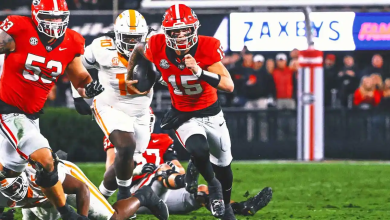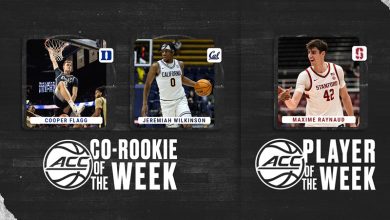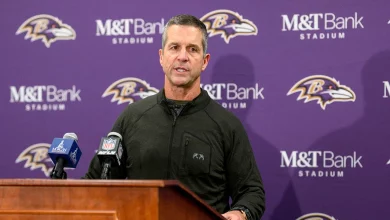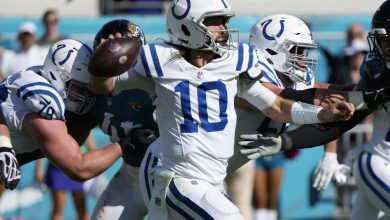**”Controversial Officiating: Doug Shows and the Questionable Calls Against Kentucky”**
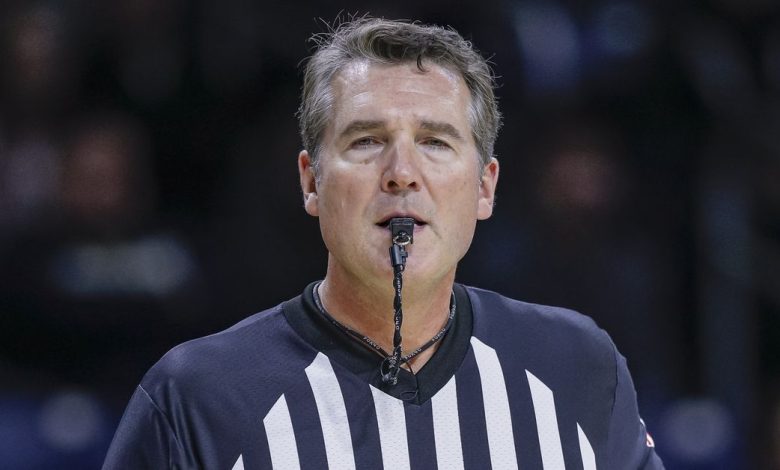
In the world of college basketball, officiating plays a crucial role in determining the outcome of games. While referees are tasked with making split-second decisions in high-pressure environments, it’s not uncommon for some of those decisions to come under scrutiny. For fans of the University of Kentucky basketball team, one name has become synonymous with controversial officiating: Doug Shows. Many believe that Shows, alongside other referees like John Higgins, has been at the center of several questionable calls that have gone against the Wildcats. The debate over Shows’ bias, or perceived lack of impartiality, has reached a boiling point in recent seasons, especially following the 2025 game against the University of Oklahoma (OU), where a late-game call appeared to favor the Sooners.
The Controversy Unfolds: Kentucky vs. Oklahoma (2025)
The game between Kentucky and Oklahoma in 2025 was a high-stakes matchup, and as with any game involving the Wildcats, it drew significant attention from both fans and analysts. Kentucky, known for its high-powered offense and solid defense, came into the game as the favorite, with many predicting a comfortable win. However, the game quickly became overshadowed by the officiating of Doug Shows.
As the clock wound down in the closing moments of the game, Kentucky was in a tight battle with OU. A pivotal moment came near the end of the first half when Shows went to the monitor, seemingly looking for any opportunity to penalize Kentucky. Fans and analysts alike were quick to notice this, speculating that Shows was searching for any reason to make a controversial call. His decision to review the play, and the subsequent ruling, became a lightning rod for criticism.
Had time not expired in the game, Oklahoma would have been awarded two free throws, which many believed could have ultimately led to a game-winning shot. The frustration among Kentucky supporters was palpable. They felt that Shows had taken every opportunity to penalize their team while avoiding similar scrutiny for Oklahoma. It wasn’t just the review itself that sparked outrage, but the context surrounding it, which seemed to favor the opposing team.
Doug Shows: A History of Controversial Calls
Doug Shows is not a stranger to controversy in the world of college basketball officiating. Over the years, his calls have been the subject of heated debate, particularly when it comes to Kentucky games. While no official is immune from criticism, Shows’ history of questionable decisions against Kentucky has led many to believe that he has an implicit bias against the Wildcats.
This situation with Oklahoma wasn’t an isolated incident. Fans of Kentucky have long pointed to similar calls in past games that have had a direct impact on the outcome. From technical fouls to questionable fouls being called late in games, Shows has often been at the center of these moments. While referees are tasked with maintaining fairness, many feel that Shows’ calls often tend to swing in favor of the opposing team in high-profile matchups involving Kentucky.
Critics argue that Shows’ officiating style is sometimes erratic, and the Wildcats have borne the brunt of this inconsistency. Whether it’s an uncalled foul or a dubious decision made after reviewing the play, Kentucky fans have repeatedly voiced their frustration with Shows’ influence on the game. The University of Kentucky, a perennial powerhouse in college basketball, has often found itself at the mercy of these late-game calls, which have cost them wins and momentum.
John Higgins: The Unwelcome Comparison
For many Kentucky fans, Doug Shows’ officiating style evokes memories of another controversial referee: John Higgins. Like Shows, Higgins has been a figure of disdain for Wildcat supporters, largely due to his seemingly biased calls during critical moments in games. This comparison isn’t simply a matter of one bad game but rather a trend of questionable officiating in high-stakes matchups involving Kentucky.
Higgins’ most infamous moment came during the 2017 NCAA Tournament Elite Eight, when Kentucky faced off against North Carolina. Many fans felt that Higgins’ calls throughout the game had a direct impact on Kentucky’s chances of advancing to the Final Four. The feeling of bias was so strong that it even gained traction on social media and various sports platforms, leading to calls for greater scrutiny of officials like Higgins and Shows.
Though the comparisons between Shows and Higgins may seem unfair to some, the pattern of questionable officiating in Kentucky games remains an undeniable point of contention. In many fans’ eyes, Shows and Higgins represent a kind of officiating trend that seems to unfairly target Kentucky. These repeated instances have made it difficult for Wildcat supporters to dismiss their concerns about the impartiality of the referees.
The Role of Officials in College Basketball
Officiating in college basketball is not an easy task. The pace of the game, combined with the high stakes, means that referees must make fast decisions while maintaining fairness. Officials are human, and like all people, they are susceptible to making mistakes. However, when it comes to high-profile teams like Kentucky, the spotlight is brighter, and the margin for error is smaller.
That being said, the scrutiny of officials such as Doug Shows and John Higgins goes beyond the occasional missed call. It is rooted in the perception that certain referees may be more prone to making calls that disadvantage certain teams, particularly those that are heavily favored. For Kentucky, this perception has become entrenched over the years, and every controversial call is viewed through the lens of past grievances.
Fans of any team may argue that a referee’s calls are biased when their team is losing, but for Kentucky, the frequency of questionable calls against them has led to a larger discussion about accountability in officiating. After all, when the outcome of a game hinges on a single decision, it’s natural for fans to demand transparency and fairness from those in charge of making those calls.
The Impact on Kentucky’s Reputation
Kentucky’s basketball program is one of the most successful and storied in NCAA history. The Wildcats have produced countless NBA players and have won multiple national championships. However, the frequent discussions surrounding officiating decisions—particularly those involving Doug Shows—have left a blemish on the program’s reputation.
While Kentucky fans are quick to defend their team’s honor, it’s impossible to ignore the broader implications of controversial officiating. Referees like Shows not only affect the outcome of individual games but also contribute to a perception that Kentucky is regularly wronged on the court. This affects the morale of players, coaches, and fans, and it has the potential to influence future recruitments.
As one of the most visible programs in college basketball, Kentucky’s experience with controversial officiating serves as a cautionary tale for other teams. It highlights the importance of fairness and accountability in officiating and the lasting effects that controversial calls can have on a program’s legacy. For every questionable call, the Wildcats are left trying to regain momentum, and the narrative of being “cheated” by the referees continues to permeate the fanbase.
Calls for Accountability and Change
In the wake of controversial officiating decisions, there has been growing demand for greater accountability within the NCAA’s officiating structure. Fans, analysts, and coaches alike have called for more transparency in the decision-making process, as well as the possibility of reviewing officiating crews’ performances in high-stakes games.
For Kentucky, this means that every time a referee like Doug Shows steps onto the court, the stakes are even higher. Fans no longer simply worry about the performance of their own team but also feel the pressure of potential officiating mistakes. While it’s unreasonable to expect perfection from officials, there’s a general consensus that the NCAA must do more to ensure fairness and consistency.
The NCAA could take steps to address these concerns by implementing a system for reviewing controversial calls and ensuring that referees are held accountable for poor decisions. Additionally, improving training and offering more support for officials could lead to a reduction in mistakes during high-profile games. Whether these changes will come in time remains to be seen, but for Kentucky fans, the hope is that no team will have to deal with the unfair disadvantage they feel they’ve faced in recent seasons.
The controversial officiating of Doug Shows in the Kentucky vs. Oklahoma game is just the latest chapter in a long history of questionable calls that have impacted the Wildcats. Whether it’s intentional or a result of poor decision-making, these calls continue to fuel the frustration of Kentucky fans. As the conversation about fairness and accountability in officiating continues, the hope is that the NCAA will work to ensure that no team, especially one as successful and storied as Kentucky, is ever again subject to the whims of controversial officiating.
This article, focusing on Doug Shows’ controversial calls, explores the ongoing frustration surrounding officiating in Kentucky basketball games. It looks at how a history of questionable calls has created a narrative around referees like Shows and John Higgins, raising concerns among fans about the fairness of NCAA officiating.



